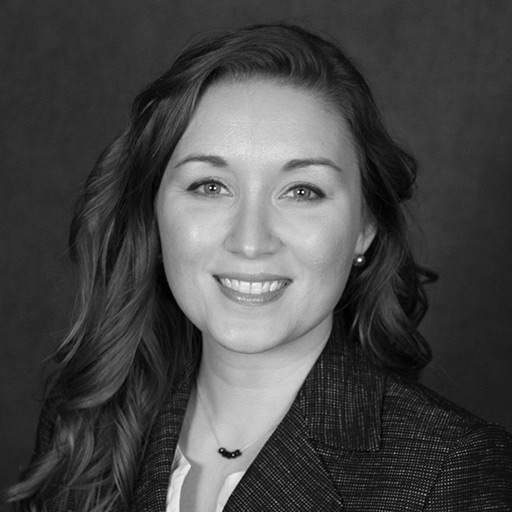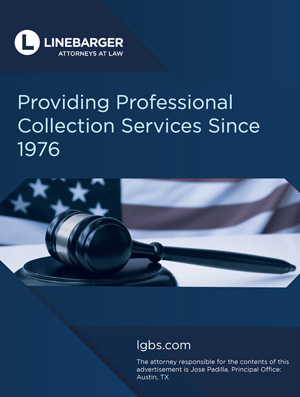Distracted, indecisive, selfish, disruptive, entitled, impatient, entrepreneurial: traits not typically solicited in a court administration job posting. Yet these traits are often associated with Millennials, the generation occupying and applying for the majority of jobs in courts worldwide. Each year, more long-term employees join the retirement-eligible population, and as the economy recovers, even more are retiring. Baby Boomers and Generation Xers are leaving leadership positions and taking valuable institutional knowledge with them.
Of course, Millennials will not fill all new positions. Early Career Professionals (ECPs)—those under 40 years of age, or with less than 10 years of court management experience — come into court management through a variety of paths. ECPs who are not Millennials will be working with, hiring, and grooming Millennials for leadership positions.
Estimates vary, but most agree that by 2020 over half of the workforce will be under 40 years old, meaning that over half of the workforce will be Generation Y or Generation Z. That’s less than two years away. Courts need to be ready.
Like all generalizations, there are plenty of individuals who don’t conform, and plenty in other generations that also exhibit typically Millennial behavior; nevertheless, the societal shifts experienced during each generation’s formative years impact attitudes, beliefs, and values and, therefore, career trajectories. With all their flaws, do we even want Millennials to take on leadership roles in our courts? If so, do Millennials want to be in courts? Is there a way we can work with Millennials to achieve courts’ purposes and goals?
Yes.
Distracted, but Engaged
Stereotype: Millennials are always on their phones, and multitasking but not well.
Opportunities: The constant connection provides access to endless information. Through social media, users have access to diverse events, restaurants, and user feedback from a worldwide audience. With an endless stream of stimulation coming from one little device, it’s no wonder Millennials are perpetually tethered.
ECPs can use this to learn about courts and become acclimated with the culture, as well as the needs of the court. Courts can take advantage of Millennials’ engagement in these platforms to support initiatives. ECPs can connect to other jurisdictions struggling with similar challenges, and innovative ways to address them, or share ideas to improve their courts. Access-to-justice initiatives may be particularly well suited for Millennials to find new paths to provide channels for underserved populations.
Indecisive, but Resourceful
Stereotype: Millennials hardly purchase cough drops without comparing prices and reviews on several websites. And according to Aerial Ellis, author of The Original Millennial, Millennials are frugal, despite a desire for the finer things in life. And this proclivity for research and information works in other areas, too.
Opportunities: That expectation of research and comparison is required in many bureaucratic governmental processes. Cash-strapped jurisdictions may be able to use this approach to tackle funding issues in creative ways.
Courts can also use these research methods to solicit feedback from users — the annual CourTools Public Survey is one way, but a pen-and-paper survey is not very Millennial-like. How can we solicit feedback online from our actual customers? Can we put any stock in our courthouse Google reviews and Yelp reviews? What impact do those reviews have on real court customers? A Millennial will find out.
Selfish, but Self-Aware
Stereotype: Everyone is special, and everyone gets a trophy. Millennials grew up being praised for every little thing to protect their self-esteem, and now they are needy. And the number of selfies they take is further evidence of how self-absorbed they are.
Opportunities: More than constant applause, Millennials crave feedback. Yes, like anyone, they like accolades, but they also want to know when they haven’t met expectations. This generation’s Gen X parents talked it out with them, and now Millennials want to understand why decisions are made a certain way and have the opportunity to voice their perspectives. Regular interactions like this can get an ECP on the right track right away — no waiting for an annual review to see improvements.
Selfies may appear to be Millennials celebrating themselves, but they demonstrate their self-awareness. Selfies are endlessly scrutinized and captions are repeatedly re-worded to capture the desired effect. Millennials are aware of how they are perceived. Their ruthless editing can be a benefit to any detail-oriented project, or projects of a sensitive nature, both of which abound in courts.
Disruptive, but Developing
Stereotype: Always questioning, never satisfied, Millennials must do things differently.
Opportunities: With Millennial leaders, no more “this is how it’s always been done.” This may be particularly threatening for a traditional institution like the courts — but change will be essential to remain relevant in serving Millennials. However, Millennials aren’t looking for change for the sake of change. They have a genuine interest in personal development. ECPs have a lot to learn about courts — knowing a new leader doesn’t have to be forced into developing his or her knowledge, skills, and abilities is refreshing. (Your feedback is an essential part of their development.) To a Millennial, stagnation is the antithesis of improvement.
Entitled, but Confident
Stereotypes: The propensity of Millennials to job hop and demand flexible work schedules proves that they don’t think they should have to work their way up like everyone else.
Opportunities: My first job was a server at a diner, and while it was a valuable experience, eventually I hopped on to another job. My first job out of college was a temporary position so I had no choice but to job hop again. Even within the courts I’ve held three positions in five years. Opportunities for advancement often require job hops. And why not? ECPs’ desire for more and the confidence to pursue can translate well into the improvements our courts seek.
Similarly, a change to the traditional work schedule can be complicated in courts expected to serve the public during regular business hours; but to Millennials, work ethic isn’t measured by punching the clock. In fact, Caroline Beaton says the ability to provide work-schedule flexibility is often more important than competitive pay in her Forbes article “6 Millennial Myths that Need to Die.” Flexible schedules could be a good opportunity in courts where competitive pay is difficult to come by. The status quo isn’t comfortable for Millennials — they have ideas and are willing to stand up for them.
Impatient, but Efficient
Stereotype: Millennials want instant gratification and lose interest fast.
Opportunities: Technology has placed answers at our fingertips, no matter where we are. No more waiting for someone to get home to be able to call them, or waiting to go to the library to do research, or waiting to see Grandma to learn how to make her famous fill-in-the-blank recipe, or even having to take classes to learn complex processes, including legal activities. Thanks, Google.
ECPs’ expectations of doing a lot with a little will transfer well into courts that struggle with caseloads and case-processing times. A generation that moved doctor appointments online will be able to apply the same principles to helping self-represented litigants and automating processes.
Court customers’ expectations have shifted, expecting results much faster than our case-processing standards require. And in the time it takes to schedule a meeting with subject-matter experts to get an answer, a Millennial will be searching for answers him- or herself — and likely wondering why the information isn’t available online. Millennials’ research skills are on point — we no longer need to rely on anecdote to make policy decisions. We can use data to give us an answer, if we just know where to look.
Entrepreneurial, but Industrious
Stereotype: Millennials don’t take direction and don’t work well with others, so they create their own businesses.
Opportunities: Often, entrepreneurial tendencies are borne out of necessity, and sometimes present as a side hustle — a second job, a startup company, or an adjunct teaching gig.
While entrepreneurship may seem antithetical to a career in court administration, the side-hustle MO nicely coalesces with the needs of courts, where court leadership offers many, ahem, “opportunities” for a (nonpaying) side hustle quite different from “what you were hired to do.” Our leaders wear many hats — I for example, am the research manager for my court, but I am also involved in strategic planning efforts and committees, and I facilitate leadership communication training and participate in the ECP group through NACM. Millennials don’t balk at additional responsibilities. ECPs and courts will mutually benefit.
On top of this all these traits — engaged, resourceful, self-aware, developing, confident, efficient, and industrious — perhaps their least unique characteristic is the Millennial desire to do meaningful work. As Simon Sinek argues in Start with Why, it’s not what we’re doing, but why we’re doing it that attracts people. Lucky for courts, we have a strong sense of purpose to draw in Millennial ECPs. Millennials may not be drawn to what the court does — scheduling hearings, filing papers, entering data—but they’ll be drawn to why — pursuit of justice, providing a forum to be heard, or any of Freisen’s and other’s purposes and responsibilities of courts.
Millennials will continue to fill our courts as customers, administrators, and stakeholders. What traits will be the most challenging? The most beneficial? What have you or your court done to entice Millennials to join the court? What stereotypes do you see working against Millennials pursuing a career in court management?
Continue the conversation on the NACM Connected Community.
ABOUT THE AUTHOR
Michelle Dunivan is the research director of the Maricopa County Superior Court, Arizona.



